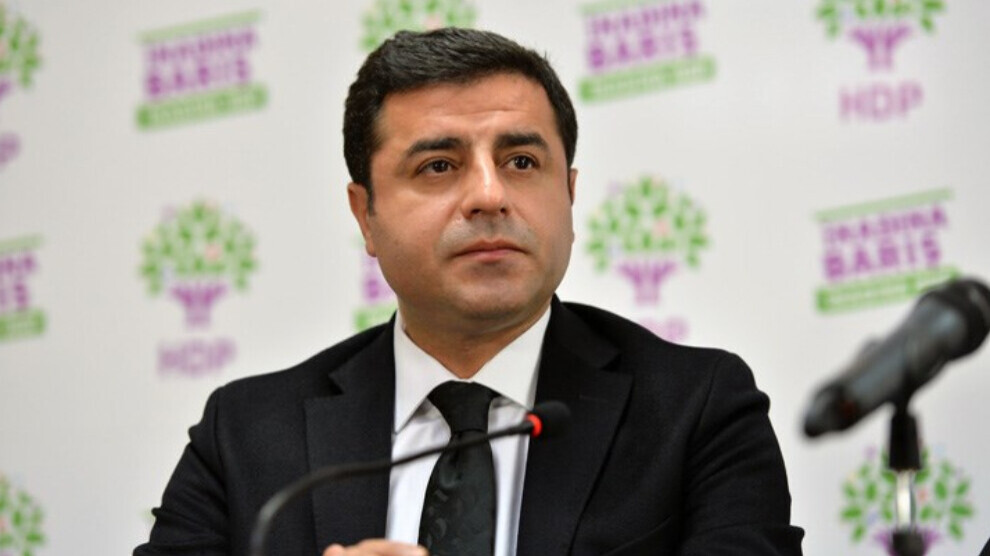ECtHR calls for the immediate release of Demirtaş
The European Court of Human Rights ruled that Turkey is unlawfully jailing Demirtaş and called on Turkish authorities "to take all necessary measures" to secure Demirtaş's immediate release.
The European Court of Human Rights ruled that Turkey is unlawfully jailing Demirtaş and called on Turkish authorities "to take all necessary measures" to secure Demirtaş's immediate release.

The Grand Chamber of the European Court of Human Rights has ordered the immediate release of former HDP co-chair Selahattin Demirtaş on Tuesday.
Finding several violations of the European Convention on Human Rights in the case of the detention of the Kurdish politician, the Court ruled that Turkey is unlawfully jailing Demirtaş and called on Turkish authorities "to take all necessary measures" to secure Demirtaş’s immediate release.
The Court found in particular that the interferences with the applicant’s exercise of his freedom of expression – namely the lifting of Demirtaş’s parliamentary immunity as a result of the constitutional amendment of 20 May 2016, his initial and continued pre-trial detention, and the criminal proceedings brought against him for terrorism-related offences on the basis of evidence comprising his political speeches – had not been prescribed by law within the meaning of Article 10 of the Convention. With regard to Article 5, no specific facts or information that could have given rise to a suspicion justifying the applicant’s pre-trial detention had been put forward by the domestic courts at any time during his detention, and there had not therefore been a reasonable suspicion that he had committed the offences in question.
The same observations also led to a finding of a violation of Demirtaş’s right to be elected and to sit in Parliament. The Court found that the judicial authorities had not complied with their procedural obligation under Article 3 of Protocol No. 1 to ascertain whether or not Demirtaş had been entitled to parliamentary immunity for the impugned statements. Nor had they weighed up the competing interests or taken account of the fact that Demirtaş was one of the leaders of the political opposition in his country.
Lastly, the Court found it established that the applicant’s detention, especially during two crucial campaigns relating to the referendum of 16 April 2017 and the presidential election of 24 June 2018, had pursued the ulterior purpose of stifling pluralism and limiting freedom of political debate, which was at the very core of the concept of a democratic society. The Court held that the respondent State was to take all necessary measures to secure the applicant’s immediate release.